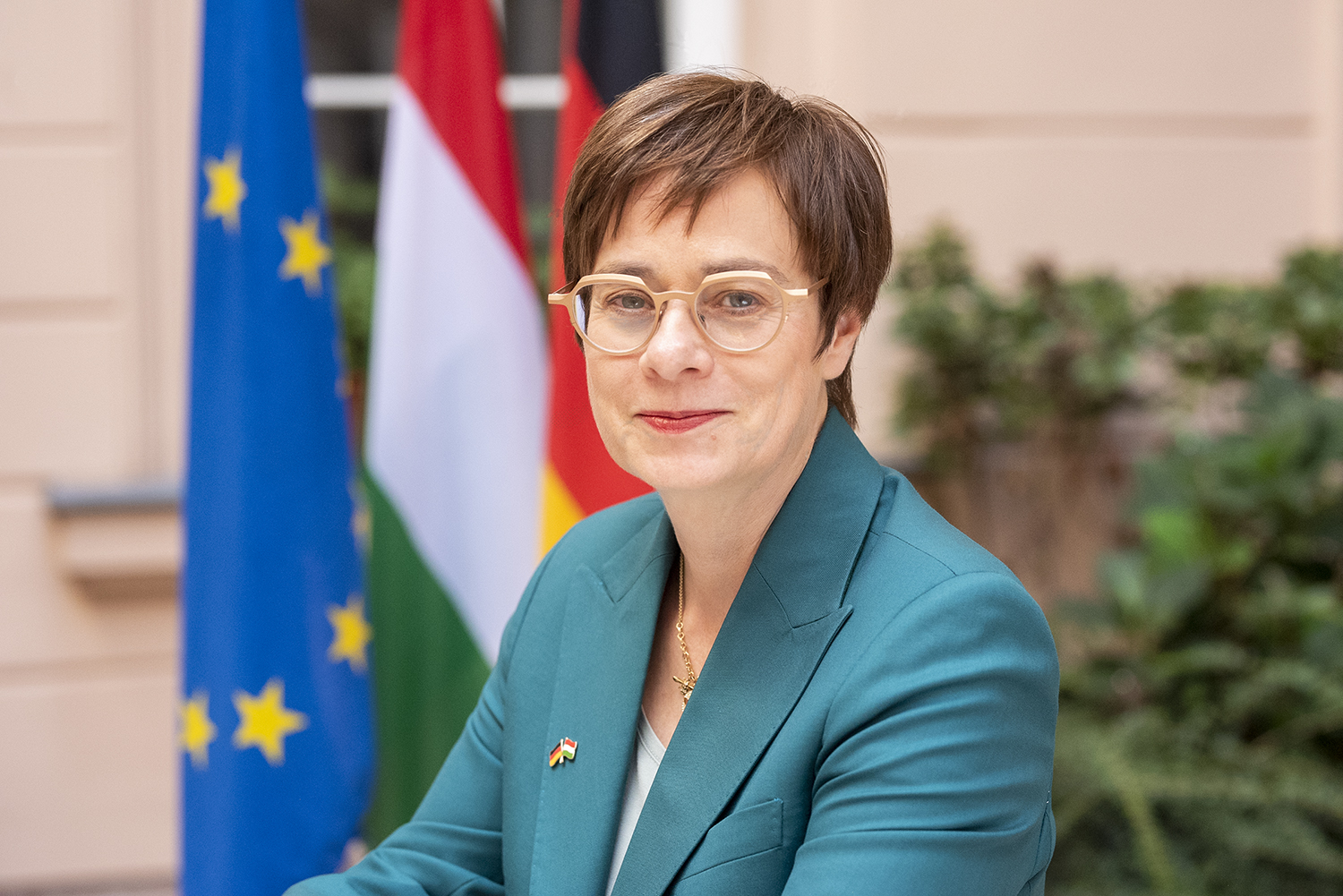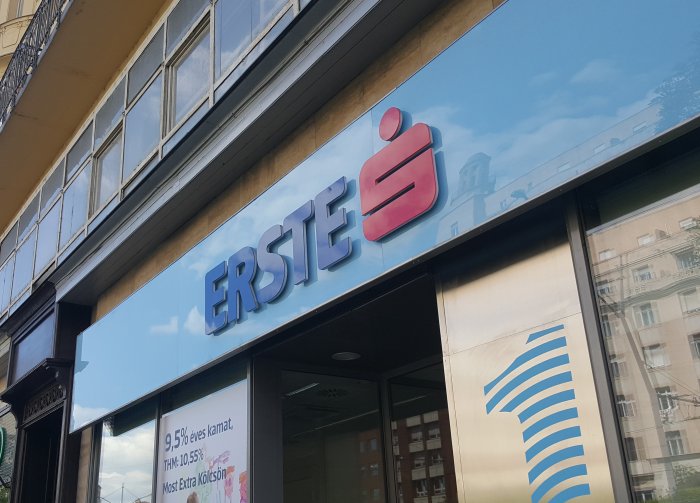German Business Presence in Hungary a Success Story we ‘Want to Continue,’ Says Ambassador

German Ambassador Julia Gross
The 50th anniversary of diplomatic relations between Hungary and the Federal Republic of Germany will be marked on Dec. 21. The Budapest Business Journal asked German Ambassador Julia Gross to give us her overview of the state of bilateral relations between the countries.
BBJ: How important is the Hungarian market for German businesses?
Julia Gross: Economic relations between Hungary and Germany are traditionally very intense. Today, 3,000 companies with German ownership employ about 250,000 Hungarians. Germany is Hungary’s most important trading partner as a customer and supplier, accounting for approximately 27% of trade volume. In 2021 alone, German companies invested or reinvested around EUR 900 million in Hungary, the largest share in overall FDI.
German companies not only create jobs and contribute to Hungary’s export balance, but they also invest in training and research. They feel that, overall, Hungary provides a positive business environment, and the interest of German investors in the Hungarian market remains at a high level. In recent years, however, German companies in some sectors have begun to feel that the Hungarian business environment has become less predictable and welcoming. Businesses and investors worldwide value stability, transparency, and a level playing field when doing business. The presence of German firms in Hungary has been a success story for decades, and we want this to continue.
BBJ: What are the most significant sectors for Hungarian exports to and imports from Germany? How has this changed over the years?
JG: The most important sectors for Hungarian exports to Germany include automotive products, machinery, electrical equipment, and pharmaceuticals. Hungary, with the help of German companies, has built up a strong automotive industry, with many German automakers and suppliers having large production facilities in the country. This has led to a significant export of automotive parts and components to Germany. Measured in terms of value-added, vehicle manufacturing is the most important sector within German investments in Hungary (with an approximately 28% share), followed by the rest of manufacturing (about 25%), trade (17%), and the information/communication sector (13%). In 2022, Germany exported goods worth approximately EUR 32.2 billion to Hungary. The value of German imports from Hungary in the same period was around EUR 33.8 bln. During the last 26 years, the exports of Hungary to Germany have increased from EUR 3.5 bln in 1995. These are very impressive figures.
BBJ: What are the most interesting new business fields developing in bilateral trade between the two countries?
JG: In recent years, several interesting new business fields have been developing in bilateral trade between Germany and Hungary. Both Germany and Hungary are focusing on transitioning to renewable energy sources. This has led to collaborations and investments in areas such as solar energy, wind power, and bioenergy. German companies with expertise in renewable energy technologies have partnered with Hungarian counterparts to develop sustainable energy projects.
Another flagship project is the test track for autonomous driving in Zalaegerszeg. The ZalaZone Technology Park is used to develop and test autonomous vehicles but also connects technologies such as the 5G mobile network standard or AI for vehicle sensors. Bosch, among others, will be working there on the mobility of the future. Continental is building a development center for AI in Budapest and Audi as well.
Hungary aims to strengthen further its reputation for research and innovation. With more than 500 university partnerships between German and Hungarian universities, there is ample space and a well-established network for cooperation. The digital transformation has opened up new opportunities for collaboration in IT services. German companies are partnering with Hungarian IT firms to develop innovative software solutions, digital platforms, and infrastructure projects. This includes cybersecurity, data analytics, cloud computing, and e-commerce.
BBJ: What are the most significant challenges facing German businesses in Hungary?
JG: Some of the current challenges are not confined to Hungary but also impact German businesses here. Given the long-term geopolitical challenges, inflationary pressures are expected to remain an issue in the coming years. Pressure on supply chains continues to be an issue as well.
But there are other factors more specific to Hungary: The shortage of skilled labor has become one of the biggest challenges for German companies in Hungary, and in that context, investors also point to the necessity to invest more in education, especially in languages and STEM subjects. In some sectors, investors face short-term measures and changes like special taxes or business-targeted regulations. All foreign investors need predictability and transparency to thrive, to contribute to Hungary’s economy, and to deliver to the Hungarian consumer.
BBJ: Although the historical links between Germany and Hungary are strong, especially around the fall of the Iron Curtain and German reunification, it is no secret that political relations have not been as good as trade relations for several years. What are the greatest areas of concern for Germany, and do you see any changes on these fronts?
JG: Germany and Hungary are friends and partners, both bilaterally and as members of the EU and NATO. We have strong ties in many areas: trade, business, culture, and people-to-people contacts. We continue to cooperate well in many areas. But it is fair to say that disagreements at the European level and within NATO cannot but impact bilateral relations. Some of these political discussions directly concern the functioning of the EU’s single market and thus also affect trade relations and the business environment in Hungary. Dialogue at the European and bilateral levels is ongoing, and we continue to work to resolve the differences. We are convinced that for both our countries, unity and cooperation within the European Union and NATO are guarantors and safeguards for the future of a resilient and prosperous Europe.
BBJ: Business and diplomacy are the bread and butter for any modern ambassador, but culture is also essential. How are cultural relations, and how much time do you dedicate to this sphere?
JG: Cultural relations constitute one of the main pillars of German foreign policy: if business and diplomacy are the bread and butter, then culture might be called the ham in the sandwich. The cultural relationship between Germany and Hungary is especially rich and multifaceted. Over the years, there have been numerous exchanges and influences between the two countries in fields such as music, literature, art, and science. There are three German Schools Abroad in Hungary, German-speaking Andrássy University in Budapest, the Goethe Institute, and the German Academic Exchange Service, to name but a few. German is, after English, by far the most popular language to study in Hungary. The Hungarian-German minority, with its strong involvement in the education sector, is a strong voice and partner in our cultural relations. The large number of Hungarian students in Germany and German students in Hungary and the extensive alumni network also contribute to our ties in culture and education.
In return, Hungary has also made its mark on German culture. Hungarian composers like Franz Liszt and Béla Bartók, writers like Pétöfi and Konrad, artists like Moholy-Nagy, and scientists like [Nobel winner] Katalin Karikó have had a profound influence on German music, literature, art, and science.
This article was first published in the Budapest Business Journal print issue of October 6, 2023.
SUPPORT THE BUDAPEST BUSINESS JOURNAL
Producing journalism that is worthy of the name is a costly business. For 27 years, the publishers, editors and reporters of the Budapest Business Journal have striven to bring you business news that works, information that you can trust, that is factual, accurate and presented without fear or favor.
Newspaper organizations across the globe have struggled to find a business model that allows them to continue to excel, without compromising their ability to perform. Most recently, some have experimented with the idea of involving their most important stakeholders, their readers.
We would like to offer that same opportunity to our readers. We would like to invite you to help us deliver the quality business journalism you require. Hit our Support the BBJ button and you can choose the how much and how often you send us your contributions.










